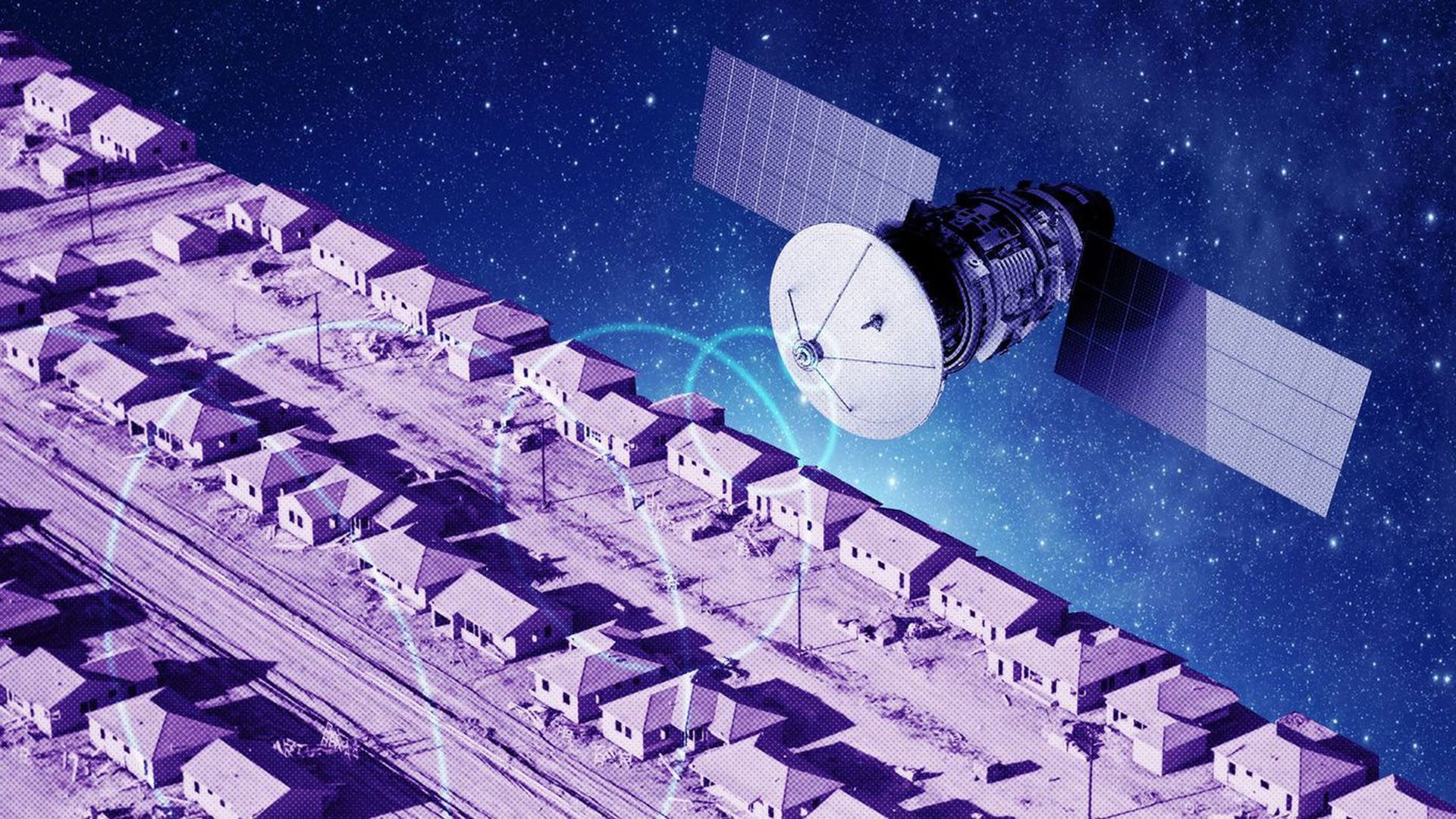U.S. spy agency's space company contracts are a sign of big things to come
Add Axios as your preferred source to
see more of our stories on Google.

Illustration: Sarah Grillo/Axios
The National Reconnaissance Office announced last week it has awarded three commercial satellite companies — Maxar, BlackSky and Planet — contracts worth billions of dollars.
Why it matters: Space operations are becoming increasingly more commercialized, and these intelligence agency contracts — which represent the NRO's largest commercial space purchase ever — mark a major moment in that trend.
- The NRO, which operates spy satellites that take incredibly detailed images of Earth, said it will use the data it receives from the companies to support its "half-million intelligence, defense, and federal civil agency users over the next decade."
By the numbers: Maxar disclosed in a Securities and Exchange Commission filing last week that its 10-year NRO contract could be worth up to $3.24 billion.
- BlackSky said in a filing that its contract is valued at a bit over $1 billion over 10 years.
- Planet did not reveal the potential amount of its contract, and it will report its first-quarter earnings on June 14.
- This moment "demonstrates the commitment and the confidence that the U.S. government has in commercial companies, like BlackSky," Brian O'Toole, CEO of BlackSky, told Axios.
The intrigue: By integrating both commercial data and NRO satellite-collected data, officials expect to get a more holistic view of what's happening on Earth at any given time.
- "As you can see from the range of satellites operated by the three companies that won the award, they're getting potentially different kinds of data from those companies," the Secure World Foundation's Krystal Azelton told Axios.
Be smart: This isn't a sudden shift for the NRO.
- The agency has been moving toward this more integrated approach for years, and it gives these companies guaranteed revenue for years to come.
- "The government is very much, I would assume, a core anchor, stability-providing partner for these companies," Azelton said. "It really not only fulfills a business model, but it ensures that they can continue to exist, as the ups and downs of the rest of the commercial market occur."

